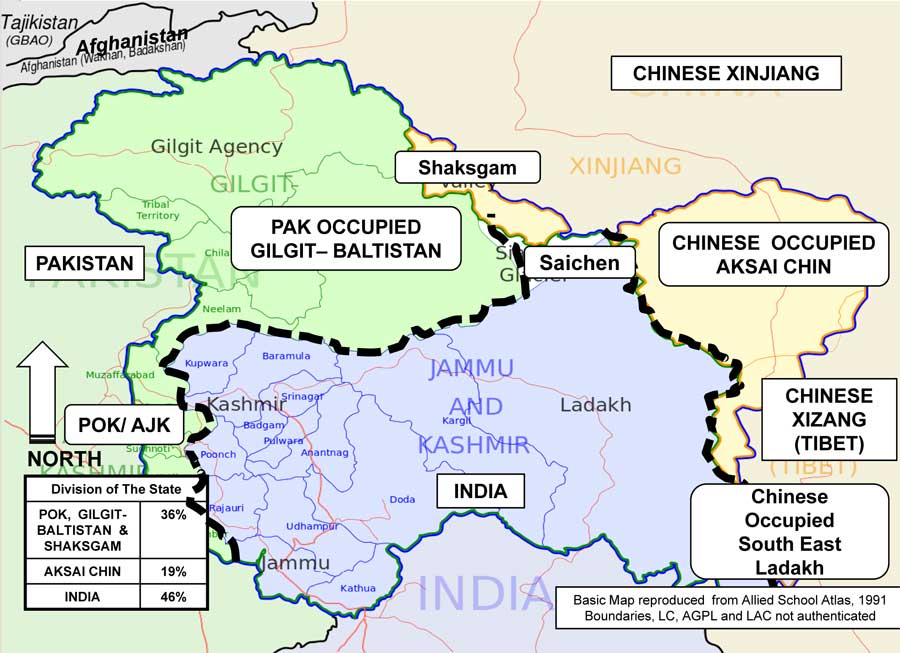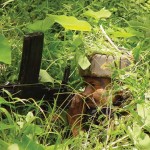There are reports in the media about the home and Defence Ministries reviewing the Armed Forces Special Powers Act (AFSPA) and seeking to dilute some sections of the same. This is to cater for comments made by the supreme court, demands by the PDP and NC as also a few expert committees. Similar attempts had been made by the Government earlier, but resistance by the army, precluded any dilution. The act was first passed by Parliament in 1958 to tackle growing insurgency in the North East. It provides operational flexibility and protection to army personnel operating in hostile environment against terrorists and other inimical forces.
The sections under review are sections 4 and 7 of the act, which accord powers and safeguards to security forces while undertaking counter-terrorism operations. Section 4 gives security personnel the power to search premises and arrest without warrant, to use force even to the extent of causing death, destroy arms/ammunition dumps, fortifications, shelters, hideouts and search and seize vehicles. Section 7 on the other hand offers protection of persons acting in good faith. Prosecution is permitted only after sanction of the Central Government.
The Centre had in the past refused permission to the J and K Government for prosecuting army personnel in 47 of the 50 cases it has submitted since 2001. In the balance cases, it has kept its decision pending. The reason given by the centre in defending its decision is lack of concrete proof.
The Supreme Court in Apr 2017 had ruled that the police must investigate all cases of death, whether the victim is a militant, terrorist or insurgent, even in areas where AFSPA is in force. It stated that this is a requirement of democracy, preservation of the rule of law and individual liberties. It is easy to criticize AFSPA, however, for troops operating in a hostile environment, especially when they are targets of forces inimical to the nation, they need to be protected to enable them to function.
There are many organizations and individuals, who would adopt an effortless option of impacting the morale of forces functioning under trying conditions, by dragging them to court on the flimsiest of reasons or even in fake cases, with fake witnesses. Once this is permitted, it would impose immense caution on troops, thereby reducing their efficiency. It must be noted that the most difficult insurgencies in the country have only been brought down and the right environment created for the Government to reimpose its control over the region, when forces have been given the freedom to act as also protected from unnecessary legal battles.
This does not imply that the army has not made mistakes in its operations. Other than a few rare cases, where troops have deliberately committed crimes, which have been dealt with disciplinarily and individuals even sent to jail, most errors have been inadvertent. This is because in such an environment, troops function under severe restrictions, knowing that one error could lead to loss of their own lives. Further, like in the North East and presently in the valley, there are localities where the locals have tended to support insurgents, making functioning difficult for security forces.
The debate on removal of AFSPA in some parts of the North East does bear merit. However, in J and K, where militancy is supported by Pak and most militants are being infiltrated, the continuation of AFSPA is essential. While political parties, including the PDP and NC in the valley, prefer its dilution and removal, the fact is that it would place the army in a difficult situation. This may bring additional votes to political parties in the short term, but would be detrimental to the nation in the long.
The reason why it must remain is simple. No army is trained or equipped to target its own people. It is primarily for defending the nation from enemies and fighting wars. However, when there is external interference and the situation is beyond the ability of all types of police forces, is the army inducted to enforce the Government’s writ. Once inducted, the army employs and deploys as per its own perceptions. While police forces have powers to search and arrest, the army in many cases operates on its own, without such powers. Hence, granting them powers is essential. It is the government which inducts it and gives it its task, its de-induction is also a government decision.
The army has its role cut out in such environments. Its task is to create an atmosphere for the government to establish its own writ. Once this has been done, it is the government which orders its withdrawal. Thus, employment and deployment are political decisions. If taken erroneously, they could be detrimental. It was for some time removed from regions within the valley due to political considerations, but re-inducted, when the situation again deteriorated. In Assam, though the situation is near normal, the State Government desires a continuation of the act, thus seeking to bring about greater stability. The army is the nation’s ultimate instrument of power. It is inducted only when all other forces available to the Government have failed. Thus, it cannot be allowed to fail. Further, it is only the Indian army which fights militancy with one hand tied behind its back. No other army resorts to handling militancy with kid gloves. It has never used helicopter gunships, heavy weapons or air power. Therefore, it suffers far greater casualties in such operations. Other nations including Pakistan, Myanmar, Afghanistan, Sri Lanka when battling the LTTE, Israel and many more have all employed air power and heavy weapons against their own people.
Amending AFSPA or reducing the protection to forces operating in such environment would impose extra caution solely to avoid legal battles, thereby supporting inimical forces. This would be detrimental to national security. The Government should consider this factor before taking any decision. Continuing employment of the army, with a diluted AFSPA is as meaningless as employing only police forces in such environments.
Courtesy: http://www.dailyexcelsior.com/afspa-should-not-be-diluted/






let the govt withdraw the AFSPA , but allow the army to hand over COUNTER INSURGENCY duties to police and para forces . With a diluted AFSPA , the army would be at the mercy of police and courts AND POLITICIANS ..